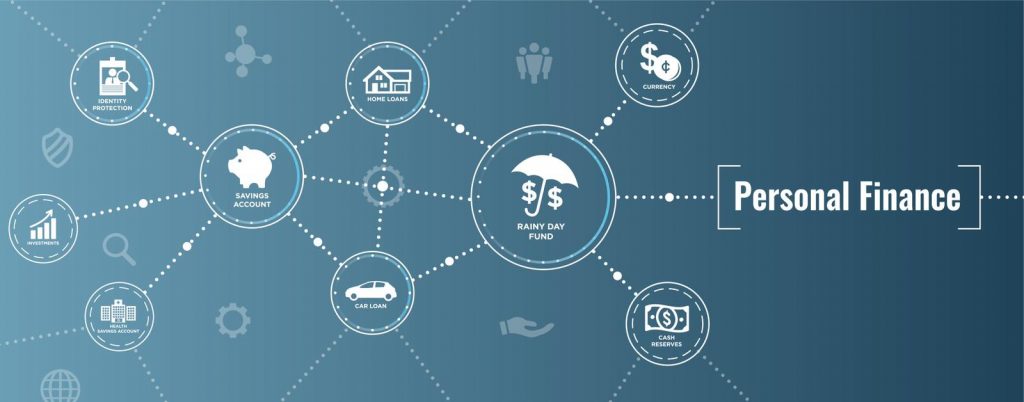I watched her as she collected a few coins from her customer, this was thirty Kenyan shillings ($0.28) more to her account, a tiny step away from poverty and, perhaps unbeknown to her, one towards financial independence. One by one, customers streamed into the tiny posho mill. Each with a different kind of need, some carried cassava with maize and others in different containers and some in sacks. For my grandmother and many other women on the continent who run their own business, there is little or no mastery of finances. The basic roller coaster is maintained, the business is only present to provide the next meal. It is a loose financial armour, one that can crash at any point, slipping one into poverty.
Financial literacy is a key tool. One that we all need, one that moves metaphorical “mountains”. For African women, financial literacy is a luxury; 70% of African women are financially illiterate. This reality results in women being excluded from making financial decisions that not only affect them but also their environment. Most women cannot access financial literacy and they don’t even know that they need it. Financial literacy which is very influential is neither thought through nor is it taken into consideration. Financial literacy gives women an upper hand in their own lives. It is a form of self-care and a form of empowerment, one that all African women need to tap.
Women are often left out when it comes to matters of finance. It happens in every part of the world and in African countries, the story is the same. Financial illiteracy and exclusion in African countries have been fuelled by a number of reasons, the main one being that most African cultures are male-dominated. In this part of the world, it is believed that most women should not access money nor should they earn. Money and women don’t mix, because traditionally a woman’s role is in the kitchen whilst important roles like finances are left to men. This is a cancer that ravages the continent to date. Women in Africa should not only learn about money but they should also be included in all spaces where financial decisions are made. Exclusion from financial spaces denies women the right to the basic financial knowledge that men gain through experience in handling money. It puts women on the periphery where financial literacy or independence is concerned. It makes women vulnerable to financial exploitation as at no point are they included in financial talks.

According to Investopedia, Financial Literacy is the “ability to understand and effectively apply various financial skills, including personal financial management, budgeting, and investing. By contrast, financial illiteracy refers to the lack of such skills.”
This basically means that when one understands how money works, a number of things will be thoroughly understood:
1. Wealth is a mindset.
Most wealthy people did not get to a six-figure by mistake nor by luck but by the mere fact that wealth starts in the mind. A wealthy mindset is a set of beliefs, habits, and behaviours that separates the wealthy from the rest. A wealth mindset will guide you to make the most of the money you have. It doesn’t come easy. A wealth mindset means spending less, making wise investments, and looking for ways to improve financial standing with minimal risk.
The average wealthy person spends 10 times more time planning their finances than the average middle-class individual. – Thomas J. Stanley, “The Millionaire Next Door,”
To create money, one has to programme oneself to ensure that one develops habits that will push one to make money and reap the benefits.
African women have not cultivated a wealth mindset and this can be blamed on the fact that financial literacy is never introduced to us at the appropriate age, hence the issue seems far off. Societal norms are also a key factor. A wealth mindset can be cultivated by the modern African woman and disseminated to her generation when she decides to take the bull by the horns and learn about money. Unfortunately, ignorance when it comes to finances is not bliss. If it is to be, it is up to me; this should be our mantra when it comes to cultivating a wealthy mindset.
2.Debt Management.
When a woman finally grasps the financial reigns, they wouldn’t shy from debt because not all debt is bad debt. With financial literacy comes the luxury of managing debt. At some point, we all have found ourselves in the big old debt hole. If financially empowered, women will understand how much they owe and to whom, the amount of interest that the debt accrues. They will also be privy to information that will help them understand which debt to pay first (the ones with the highest interest), how to create and stick to a payment calendar and, most importantly, understand when they need help. It is a common story in many households whereby a family has to sell everything to educate their child. Unfortunately, this investment is neither insured nor does it have the best return on investment (ROI). This is how most of us were inaugurated to debt and hence our relationship with debt is a negative one. We have failed to understand that we can take up a loan to start a business or finance a side hustle. The bottom line is that our outlook on debt needs to change. Take that loan sis, it might just be the key to financial freedom.

3. Building an emergency fund.
If African women are financially liberated, then they will understand the importance of an emergency fund. An emergency fund is a financial safety net set aside for unexpected expenses or mishaps. Generally, an adequate fund tends to cover six months’ worth of expenses or more. Emergency Funds are for “when” not “if” stuff happens. Building and sticking to an emergency fund is paramount as it sets the tone for saving or investing. If one can be disciplined enough to save, then one can be disciplined enough to save in order to invest. This fund is important as it ensures safety in case of an emergency like the Covid-19 pandemic or being let go from work.
4.Budgeting and Investing.
Budgeting is a common yet misunderstood term in most households. Budgeting is simply balancing one’s expenses with one’s income. Everyone who has the right financial mindset lives on a budget. Budgeting is important as it not only puts funds into perspective but it also gives room for budget forecasting and planning.
Budgeting is telling your money where it needs to go instead of wondering where it went. ~ Dave Ramsey.
Investing ensures present and future long-term financial security. The money generated from your investments can provide financial security and income.

It is time for African women to learn about money. It is definitely time for us to be at the forefront of financial literacy. This, however, will not take place by chance, it will only happen if we as African women push ourselves into these spaces whilst at the same time changing our attitude towards wealth. We need to understand that it is all in the mind that we can cultivate wealth. Changing our perspective as African women is just the first step, we need to understand debt, the good, the bad and the ugly that comes with it. We need to have it in our mind that debt can work for our good. In Swahili, we say Akiba haiozi, which translates loosely to, “savings never go bad”. This is the same attitude that we should have when it comes to saving and building our personal emergency fund. Remember emergencies don’t call to make reservations. Lastly, it is important to create a budget and stick to it. Make your money listen to you and not the other way round.






Very insightful article. I did a research on financial literacy and its impact on small scale enterprises (which are mostly owned by women) in my undergrad days. The focus was general but my findings established the fact that men posses a lot of financial literacy than women.
I want to take the research a step further for my Master’s thesis and this article will be very helpful. Looking forward to reading more from the finance column of the magazine.
Thanks